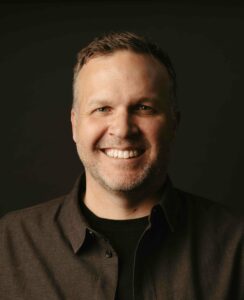In our daily lives, we often come across situations that do not live up to our expectations, made worse by our eagerness and excitement. It reminds me of a time when online shopping was a novel experience, only for the highly anticipated purchase to turn out to be a complete disappointment. The eagerness of ordering something, only for it to break almost immediately, resonates deeply with many of us. This common experience serves as the perfect metaphor for the biblical account of Genesis chapter three, verses one through thirteen, where we see the first instance of humanity being deceived by a major lie, resulting in the loss of paradise. In these verses, we’re introduced to the serpent—an embodiment of cunning and deception—who questions Eve, thus sowing seeds of doubt about God’s command not to eat from the tree of the knowledge of good and evil.
By skillfully twisting God’s words, the serpent leads Eve astray, causing her to believe that God is withholding something good from her. The moment she eats the fruit and shares it with Adam, the original harmony of creation is shattered. The agony of discovering that what you believed in was a lie is immensely relatable. Preacher Keith shares an anecdote from his teenage years, where he bought a product from an infomercial that promised to restore his friend’s car to its original shine. Despite applying the ‘Magic Shine’ meticulously, the car’s paint began to crack and fade within months, revealing the hollowness of the product’s claims. Lies destroy trust and relationships, and this is precisely what happened between humanity and God in the Garden of Eden. This pivotal moment in Genesis reveals two crucial aspects of how sin operates: first, it creates doubt in the goodness of God, and second, it convinces us that we don’t need Him. The serpent’s insidious question, “Did God really say” instills a doubt that perhaps God is not truly benevolent. This misleading thought is highly effective in making us believe that relying on God’s wisdom and commands will deprive us of better opportunities. Similar to how the serpent deceived Eve, we often fall for lies that suggest we can attain greater satisfaction and fulfillment outside of God’s plan. Whether it’s seeking validation through our careers, relationships, or material possessions, these substitutes fail to measure up.
They provide temporary satisfaction but ultimately leave us feeling empty and disillusioned. Religion alone does not shield us from these deceptions. Jesus observed that religious leaders of his time, despite their rigorous adherence to religious practices, were ensnared by self-righteousness. Their belief in their own moral superiority disconnected them from the genuine dependence on God. Conversely, those who doubted or rejected God altogether failed to grasp that human life and its complexities cannot be navigated without divine guidance and support. The reality of sin and its devastating effects are not confined to ancient times; they pervade our world today. Whether within or beyond the borders of our own countries, the brokenness of the world is evident in various forms of suffering, injustice, and calamities. The initial lies—suggesting either our independence from God or questioning His goodness—continue to plague humanity. The true tragedy is that these lies gradually erode our relationship with God, pushing us to blame Him and those around us for our circumstances. The dialogue between God and Adam after the fall illustrates how sin leads to blame and estrangement. “The woman whom you gave to be with me, she gave me fruit of the tree, and I ate,” Adam states, subtly pointing fingers at both Eve and God. This blame game distances us from introspection and reconciliation. Nevertheless, this story is not merely about the onset of despair, but also the genesis of hope. Despite humanity’s failure, God’s response is redemptive. God assures that a way of restoration and reconciliation will be provided through the eventual coming of Christ.
This promise is the heart of the Christian faith: that irrespective of our missteps, there is a path back to God. Keith explains that true change and fulfillment come from recognizing our need for God, rather than trying to control our own lives. While careers, relationships, and achievements are valuable, they are insufficient as the ultimate source of our identity and hope because they are transient and fallible. This narrative underlines the importance of self-awareness and humility. Whether you are entrenched in religious practices or live a secular life, acknowledging our limitations and the futility of self-reliance is paramount. True freedom and hope stem from surrendering to God, seeking His guidance, and trusting His inherent goodness. To make this transformation, we must often revisit and reaffirm our faith. Whether it is the first time or the hundredth, expressing our need for God and submitting to His divine plan can bring about profound personal change. Such a shift calls for vulnerability and humility, allowing God to take control of our lives and trusting in His provision. The act of surrender is liberating because it frees us from the burden of control and the anxiety of uncertainty. By placing our trust in God’s goodness and grace, we open ourselves to the profound peace that transcends our understanding. It is in this state of surrender that we find our true selves, unhindered by the lies that once constrained us. This surrender isn’t a one-time event but a continuous journey. As we navigate through life’s ups and downs, reinforcing our commitment to trust in God’s goodness becomes essential. Each prayer, each moment of worship, and each act of kindness reinforces our connection to the divine, drawing us closer to the heart of God. In a world filled with so much brokenness and uncertainty, the hope offered through faith in God is a beacon of light. It assures us that no matter how far we stray or how deep our doubts run, there is always a way back to Him. This assurance transforms not just our lives but has the potential to impact our families, communities, and ultimately, the world. The Genesis story, far from being a tale of doom, is a narrative of hope and redemption.
It challenges us to look beyond the immediate and the material, urging us to seek the divine and eternal. It calls us to rise above the lies and to embrace the truth that sets us free. In prayer and reflection, we find the strength to let go of our need for control. We learn to trust in a God who is not just almighty but also profoundly good. And it’s this goodness that offers us a hope that never fades, a hope anchored in the divine love and grace that is always available to us. So as we go about our daily lives, let us remember that we were never meant to navigate this world on our own. Let us embrace the transformative power of surrender and trust, finding in God the strength and hope we need to face each day. Through this, we can move from a state of brokenness to one of healing and wholeness, reflecting the divine love that has the power to change the world.


